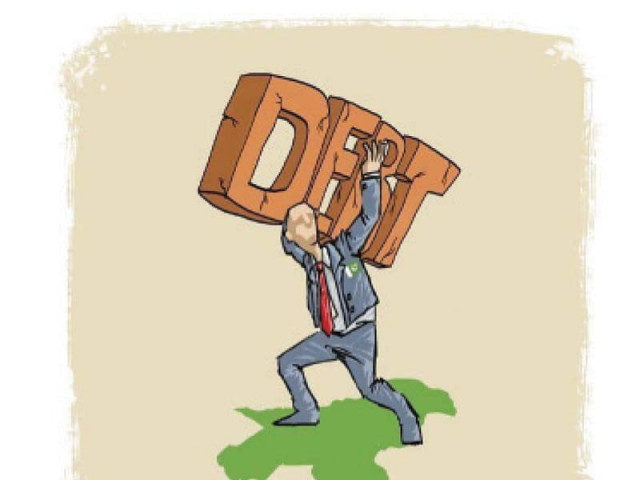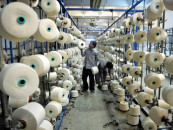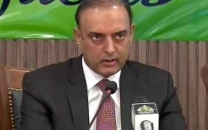Govt takes loan at highest rate
Deal for $600m commercial bank loan paves way for IMF board meeting

The government has struck a $600 million commercial loan deal with a European bank at double-digit interest rate – the highest in the country's history – to qualify for approval of a $7 billion International Monetary Fund (IMF) bailout package.
The Ministry of Finance had to swallow the bitter pill of paying the highest-ever interest rate after it could not get any additional financing from the bilateral sovereign creditors, said government sources.
The government has accepted the term sheet of Standard Chartered Bank, London, for two loans totaling $600 million, according to the sources. The country would pay the highest interest rate of around 11%, they said.
Of the total, $300 million has been obtained for liquefied natural gas (LNG) supply and another $300 million is syndicate financing.
The Secured Overnight Financing Rate (SOFR)-based interest cost is the highest that Pakistan will pay on any foreign commercial loan. The Ministry of Finance was initially reluctant to strike the deal because of its implications for future foreign commercial financing.
Attempts were also made to take additional loans from bilateral creditors but there was no positive response, according to officials. The government tried to avoid the expensive path but was left with no option after it found all other avenues closed.
However, the bilateral creditors agreed to roll over $12 billion worth of cash deposits, which paved the way for securing the date of September 25 for considering Pakistan's case in the IMF Executive Board meeting.
IMF Director for Communication Julie Kozack said on Thursday, "We are very happy that we can say now that the board meeting is scheduled to take place on September 25. And this is following Pakistan obtaining necessary financing assurances from its development partners."
Kozack said that the new Extended Fund Facility (EFF) arrangement that will be subject to the board approval follows the successful implementation of the 2023 nine-month standby arrangement.
Consistent policymaking has supported economic stability in Pakistan, most notably the resumption of growth, significant disinflation, and significant increase in the country's international reserves, she added.
In early August, Finance Minister Muhammad Aurangzeb revealed that Pakistan had an offer for a foreign commercial bank loan but he would try that the government got the loan after approval of the IMF package to ensure a lower interest rate.
From 2017 to 2021, Standard Chartered Bank gave four different loan facilities totaling $1.9 billion. Since 2021, it has not given any new loan. In 2017, the bank gave a $700 million loan at a fixed interest rate of 4.5%. In 2019, it lent $200 million at the London Inter-bank Offered Rate (Libor) plus a 3.25% margin. The bank also offered two facilities of $1 billion at Libor plus 2.4% interest rate.
Despite improving Pakistan's ratings, the international credit rating agencies still see lending to the country as highly risky and have placed it in the "C" category.
There was no other choice but to take the loan as lenders were not willing to extend funding at lower rates, said senior government officials. The finance minister and the finance secretary will travel to London next week to attend a seminar being arranged by JPMorgan Pakistan. The minister is expected to sell the story of Pakistan's turnaround and the stability the IMF programme will bring.
The country needs more foreign financing in the coming years as it will be facing the mammoth task of arranging $26 billion annually to repay debt and remain afloat. For this fiscal year, the central bank governor has said that the external debt repayment will be $26 billion, including the $16 billion that Pakistan will not pay and is expected to be rolled over.
IMF's Julie Kozack said that it is critical that Pakistani authorities recognise, and they do recognise, that consistent implementation of the new EFF is going to be necessary to successfully and sustainably stabilise the economy and pave the way for stronger and sustainable growth.
She said that it is so important to have stronger and sustainable growth to create job opportunities, especially for the young people or people who are looking to improve their standard of living.
Kozack said that the new programme is really aiming to build on this momentum and ultimately create a sustainable environment for strong growth and job creation, for the benefit of the Pakistani people, so they can reach their aspirations.



















COMMENTS
Comments are moderated and generally will be posted if they are on-topic and not abusive.
For more information, please see our Comments FAQ